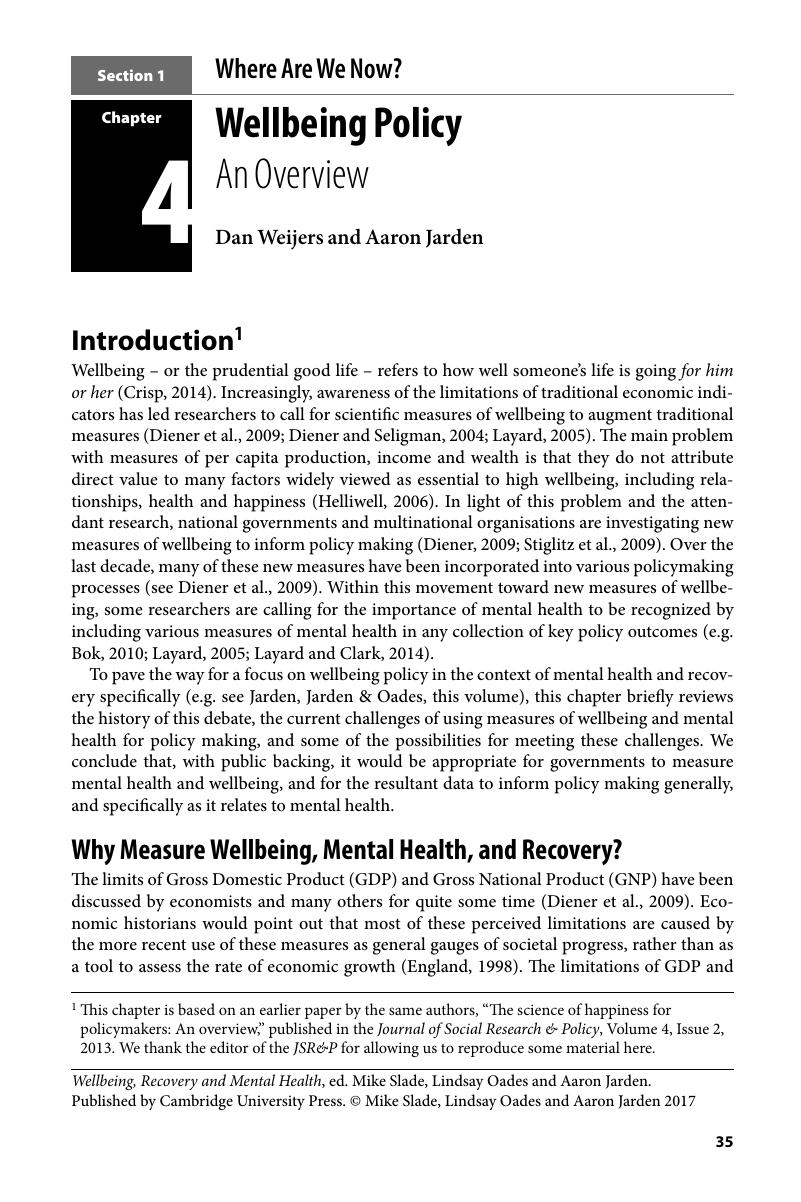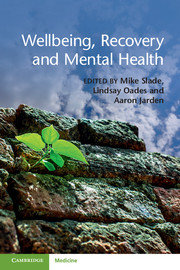Book contents
- Wellbeing, Recovery and Mental Health
- Wellbeing, Recovery and Mental Health
- Copyright page
- Contents
- Contributors
- Foreword
- Chapter 1 Why Wellbeing and Recovery?
- Section 1 Where Are We Now?
- Chapter 2 The Science of Wellbeing and Positive Psychology
- Chapter 3 Recovery and Mental Health
- Chapter 4 Wellbeing Policy
- Chapter 5 Positive Psychology and Severe Mental Ill Health
- Chapter 6 Conceptual Framework for Wellbeing in Psychosis
- Chapter 7 Meaning in Life and Wellbeing
- Chapter 8 The Complete State Model of Mental Health
- Section 2 What Does a Wellbeing Orientation Mean in Mental Health Services?
- Section 3 Beyond Services: What Would a Recovery-Supporting and Wellbeing-Targeted Society Look Like?
- Index
- References
Chapter 4 - Wellbeing Policy
An Overview
from Section 1 - Where Are We Now?
Published online by Cambridge University Press: 31 March 2017
- Wellbeing, Recovery and Mental Health
- Wellbeing, Recovery and Mental Health
- Copyright page
- Contents
- Contributors
- Foreword
- Chapter 1 Why Wellbeing and Recovery?
- Section 1 Where Are We Now?
- Chapter 2 The Science of Wellbeing and Positive Psychology
- Chapter 3 Recovery and Mental Health
- Chapter 4 Wellbeing Policy
- Chapter 5 Positive Psychology and Severe Mental Ill Health
- Chapter 6 Conceptual Framework for Wellbeing in Psychosis
- Chapter 7 Meaning in Life and Wellbeing
- Chapter 8 The Complete State Model of Mental Health
- Section 2 What Does a Wellbeing Orientation Mean in Mental Health Services?
- Section 3 Beyond Services: What Would a Recovery-Supporting and Wellbeing-Targeted Society Look Like?
- Index
- References
Summary

- Type
- Chapter
- Information
- Wellbeing, Recovery and Mental Health , pp. 35 - 45Publisher: Cambridge University PressPrint publication year: 2017
References
- 3
- Cited by



